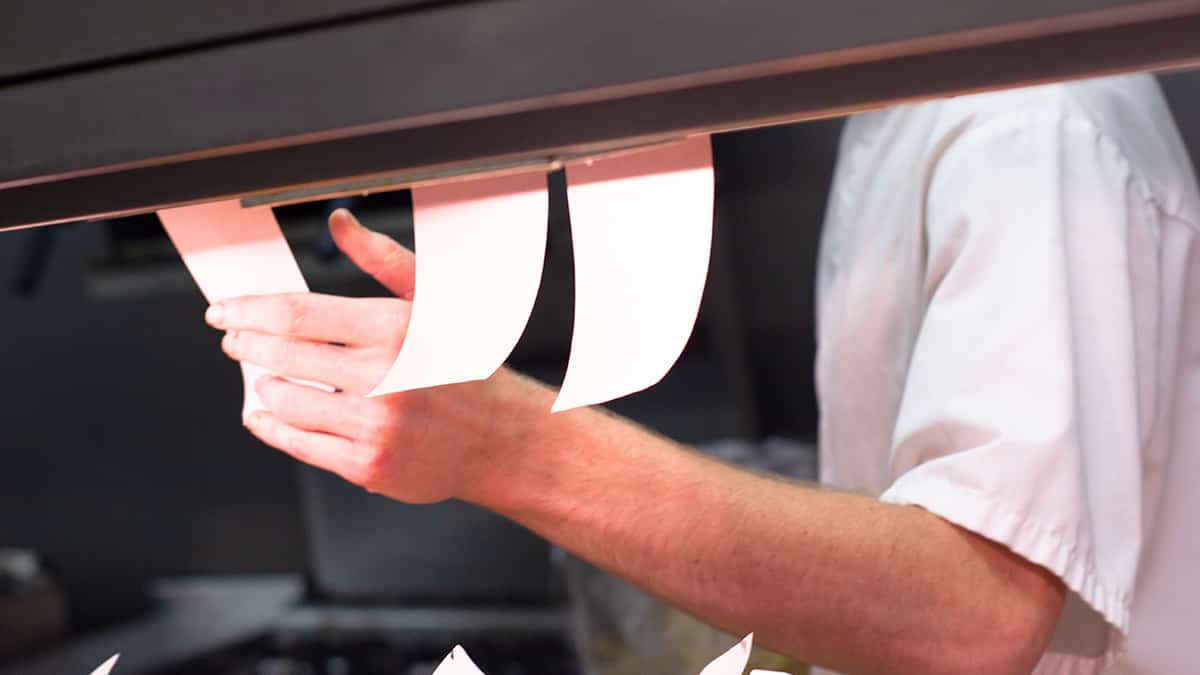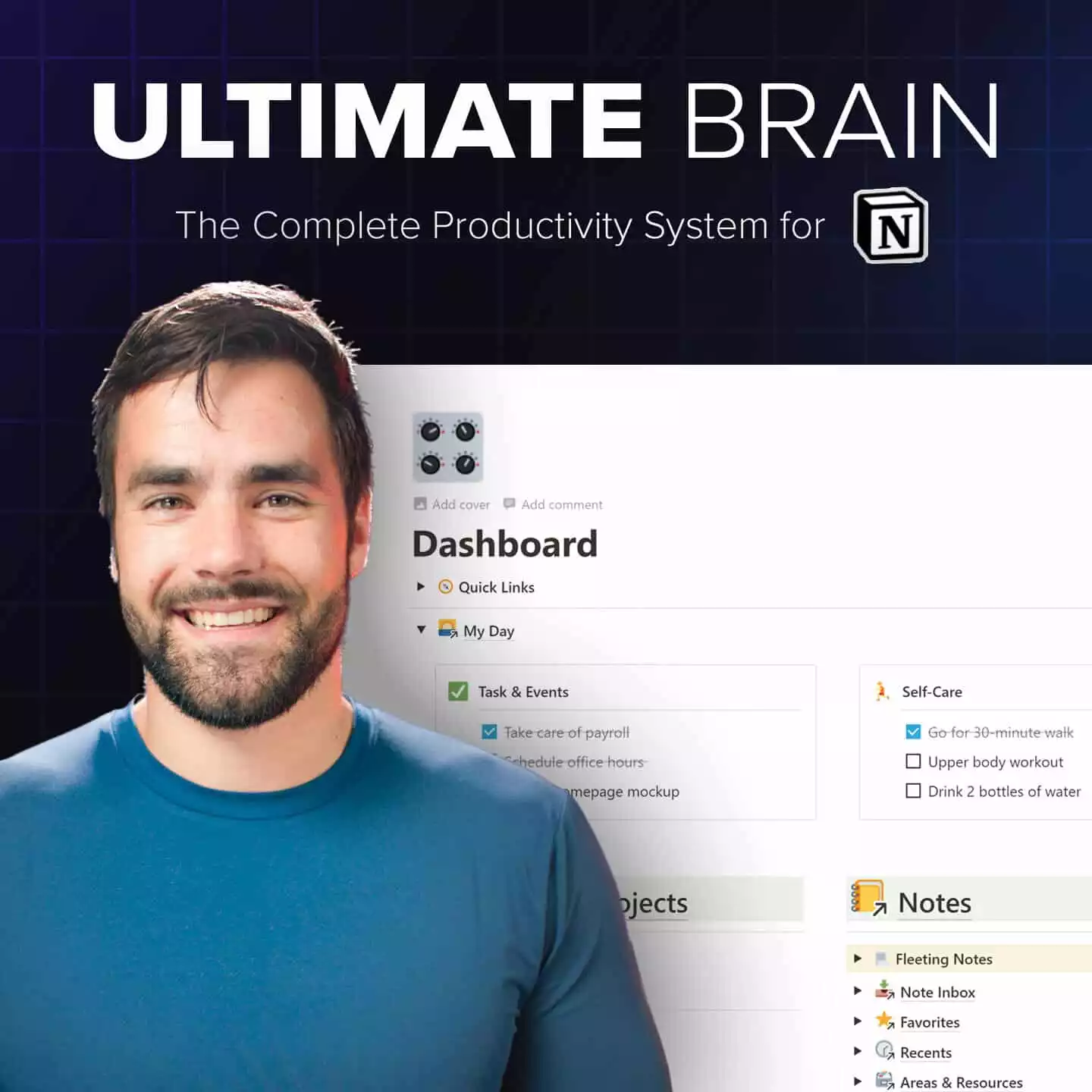At first glance, kitchen and office work don’t seem to have much in common. Kitchen work is immensely physical; office work is mostly mental. Office work happens from nine to five; kitchen work happens at all hours of the day and night.
But as author Dan Charnas argues in Work Clean, knowledge workers have a lot to learn from the way chefs work. Central to this idea is the principle of mise-en-place.
French for “put in place,” mise-en-place is the credo of every chef and professional kitchen. It describes both the mindset and the physical setup that chefs use to stay organized. Only when everything is in its proper place can chefs begin their demanding, often hectic work.
Work Clean explains how knowledge workers can apply the principles of mise-en-place to their daily workflows.
I highly recommend reading the full book for all its delightful anecdotes and lessons from professional kitchens around the world. But if you’re just looking for a taste, check out these seven productivity lessons we took away from Work Clean:
Take Time to Plan Your Work
“Chefs become planning machines so they can become cooking machines”
– Dan Charnas, Work Clean (45)
How much time and thought do you put into planning your work? According to Charnas, probably not enough. Chefs, he observes, spend more time planning than they do cooking (46). This can seem counterintuitive, but it’s key to culinary success.
When a chef is “working the line” preparing dishes for customers, they don’t have time to do anything but execute. To ensure successful execution, extensive planning is essential.
Among other things, the chef will plan the layout of ingredients, the way they organize their tools, and the time it takes to cook each dish. That way, they have less to think about when they’re in the midst of a hectic dinner rush.
While the time pressure of your work may not be as intense, you can still benefit from some careful planning. For instance, how many times have you sat down to write a paper, only to realize you don’t have the books you need?
This can completely derail your work, but it doesn’t have to be this way. If you take a few minutes to plan the steps you’ll need to write the paper, you’ll ensure you have all the necessary materials.
You don’t have to go as far as many chefs and spend more time planning than executing. But give yourself a few minutes to plan; it’s never a waste of time.
Gather Your Resources
Chefs don’t just plan to make their work more efficient. They also know that a bit of proper planning can reduce stress levels and allow for proper relaxation.
Long before they’re in the kitchen, a chef has already planned the day’s work. That way, they know they have all the materials and tools they need before work begins.
Similarly, you can set yourself up for success tomorrow when you gather your resources today. Each evening before you go to bed, prepare yourself for the day to come. This includes tasks such as:
- Packing your bag
- Checking the next day’s weather
- Laying out your clothes for the next day
The goal, as Charnas puts it, is to “give yourself as little as possible to plan or do the next morning” (258). Not only will this make your mornings calmer; it will also allow you to enjoy your evenings and free time without worrying that you forgot something for tomorrow.
Cleaning Matters
For professional cooks, keeping a clean workstation is non-negotiable.
To start, a messy station makes mistakes more likely. The messiness of a cook’s work area typically indicates a similarly messy mind. And with a messy mind, proper execution is impossible.
Furthermore, a dirty kitchen is a health hazard; it can literally kill diners in extreme cases. Good hygiene and health codes both dictate that cooks work as cleanly as possible to keep restaurant guests safe.
While it’s unlikely anyone’s life depends on you keeping your desk clean, it can still have important psychological benefits. Physically wiping down your desk with a towel or damp cloth “has a profound effect for many people” (252).
And taking a few moments to straighten all the items on your desk before you work can help your mind get into “work mode.” This is especially helpful if you’re about to do mentally intense work that requires lots of focus.
Clean As You Go
Keeping your physical workspace clean has obvious benefits. Less obvious (but still profound) are the benefits of keeping your digital workspace clutter-free.
If you’ve ever had too many browser tabs open, you’ve witnessed why a clean digital workspace is key. When your screen is cluttered, it’s much harder to focus. It often indicates that your mind is disorganized, with all the apps and tabs you have open pulling your attention in a dozen different directions.
The antidote is, once again, something you can learn from chefs: clean as you go. Charnas recommends this rule of thumb: For every hour you work at your desk, spend one minute resetting your physical and digital workspaces (94).
For instance, let’s say you’ve just spent the past hour responding to emails. Now, it’s time to move on to editing a video for a client. Instead of opening Premiere and jumping straight into editing, pause for a moment. Close the email app, your browser, and anything else you don’t need for your editing work.
This sort of cleaning as you go takes just a minute or so. But it ensures incoming emails won’t distract you during the tough mental work of editing.
Give Yourself One Less Thing to Do Each Day
Whether you’re in college or the corporate world, the temptation to overschedule yourself always exists. And overscheduling can lead to a cycle of disappointment, with each day never having enough time for all the work you planned to do.
As an alternative, Charnas suggests that you “underschedule” yourself (257). He quotes fashion entrepreneur Coco Chanel, who advised people to “look in the mirror and take one thing off” before leaving the house (258).
You can do the same with your schedule. After you’ve planned tomorrow, look at your schedule and remove one thing from it. This won’t always be easy, but that’s the point. Viewing your schedule this way forces you to prioritize.
Eliminate Points of Friction in Your Work
Chefs strive to minimize wasteful, unnecessary movements. Every movement a chef can eliminate or simplify means an extra second to perfect the dish they’re preparing. And over the course of a busy kitchen shift, these extra seconds really add up.
You can apply this principle to knowledge work as well. Any process you do regularly probably has room to be more efficient.
Charnas recommends finding the points of friction in your work; that is, any part of a process where you get stuck or make mistakes (75). Once you’ve pinpointed these sticking points, you can eliminate or minimize them.
Take a task that most of us have to do at some point: creating a presentation. If you write down all the steps that go into this process, you’ll probably notice some room for improvement.
For instance, maybe you realize that you spend too much time designing the layout of your slideshows. Recognizing this, you decide to download some attractive presentation templates to save time on design.
It’s a simple example, but imagine what would happen if you applied this same mindset to all the projects you regularly do.
Strive for Perfection, Never Perfectionism
“Excellence is quality delivered”
– Work Clean (130)
Have you ever spent so much time trying to perfect a project that you missed a deadline? If so, you might be a perfectionist. The mindset is understandable: you want to do your best possible work. But it doesn’t matter how great your work is if you never turn it in.
Chefs understand that there’s a difference between striving for perfection and perfectionism (130). Chefs always strive for perfection, but they also know their work has a deadline. They cannot take forever to prepare a dish; customers will get hangry and upset.
Furthermore, delivering a product by the deadline is essential to professional growth. Unless you deliver, you’ll never get feedback. And without feedback, you’ll have no idea how to improve your work.
So next time you wish you could have “just one more hour” to perfect a project, remember that deadlines are good. A deadline keeps you from laboring over minutiae forever, and it gives you the feedback you need to do even better work in the future.
Work Cleaner to Work Better
I hope this article has given you some unconventional productivity lessons you can apply to your work or studies. Even if you never work in a professional kitchen, you can still learn a lot from the principles of mise-en-place.
Looking for a tool that will help you work clean every day? Check out our Ultimate Brain template:
Organize every aspect of your work and life with this powerful Notion template. From managing homework assignments to organizing job application materials, Ultimate Brain has you covered. Use the code INFOGEEK40 to get $40 off.
Image Credits: cook pulling an order ticket



